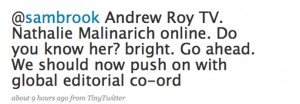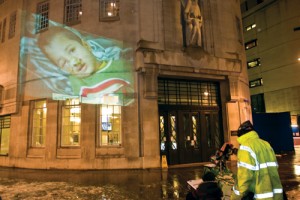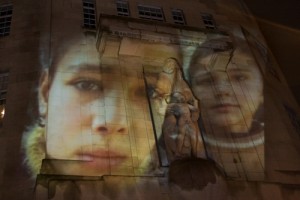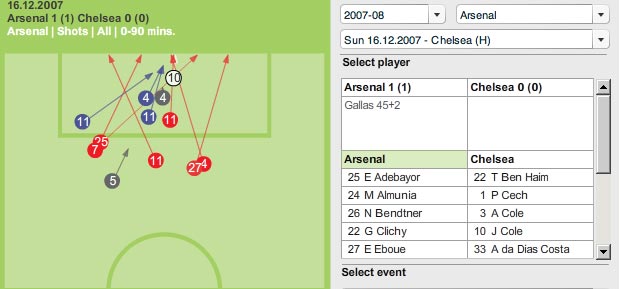Yesterday saw representatives from the UK’s financial journalism industry give evidence to a House of Commons Treasury Committee inquiry into the banking crisis.
So what conclusions were drawn about the media’s ‘role’ in the crisis?
A fairly resounding ‘it wasn’t our fault’ from the journalists gathered (Financial Times editor Lionel Barber, BBC business editor Robert Peston, Daily Mail city editor Alex Brummer, Sky News’ Jeff Randall and the Guardian’s Simon Jenkins):
- The UK’s banks and economy, in particular Northern Rock, were headed for a crash anyhow and no amount of warning/doomsaying from the media would have changed this. No one – neither the media nor those in charge of the financial institutions were expecting the force of what was going to happen to the economy
While Simon Jenkins said in retrospect he ‘wouldn’t have done it or had it done differently’, some of yesterday’s session echoed Robert Peston’s comments to UCLAN’s Journalism Leaders Forum, when the BBC journalist said there were some lessons to learn from the media’s handling of the situation:
- Alex Brummer said a lot of the reporting of the financial breakdown was handled by young, inexperienced journalists staffing finance desks, most of whom weren’t around in the last crisis. If you’ve only seen boom times it was even easier to take the press releases/briefings from businesses and financial orgs at face value and not question them, he said.
- Business journalists are in competition with the richest organisations in the world, added Brummer, and city editors did not push hard enough to get negative stories about the economy higher up the news agenda during the boom period.
- Jeff Randall agreed with Peston’s UCLAN comments, saying that it could be argued the public had been allowed to live in economic optimism for too long, fuelled by the media.
- According to Lionel Barber, there’s no point hiding stories of the recession behind ‘happy talk’.
- On the BBC’s coverage, Robert Peston said each of the stories about the banking crisis were published in the public interest; though Brummer said the public had been very ill-served by the media’s coverage of the economy and more must be done to deepen economic understanding.
An informative discussion with some of the leading journalists in the UK field, yet why had they been summoned in the first place?
Prompted via a Twitter chat with NYU professor Jay Rosen, shouldn’t we be asking who is saying the media is to blame for the banking crisis in the first place?
One question from the committee to Peston struck me as particularly misplaced in this respect, as he was asked what he thought about being a market force in his own right. In his own words, Peston is just a journalist reporting on the facts and information he receives.
Yes – there are lessons to be learned from looking at whether media coverage of the banking crisis indirectly added to public anxiety about the situation or contributed indirectly to already falling share prices.
But as Lionel Barber pointed out yesterday, it was never the media’s intention to break the banks, but simply to report on the situation. Peston’s stories, the man himself said, were verified reports from close contacts and sources and built on as much information as he could gather.
At the UCLAN event, Peston said the ‘primary responsibility for the global economic and banking crisis does not lie with the media’ – but why is the media having to defend itself. In a feisty exchange, Barber posed a similar question to the committee: why didn’t the government bail out Lehman Bros – this failure could be seen as escalating the crisis just as much as any media role.
It was joked that the only five journalists to have spotted the crisis ahead of time were sitting in the committee room – evidence that there were dissenting voices in a sea of stories about never-ending house price rises.
Evidence that this was an exercise in shooting the messenger



